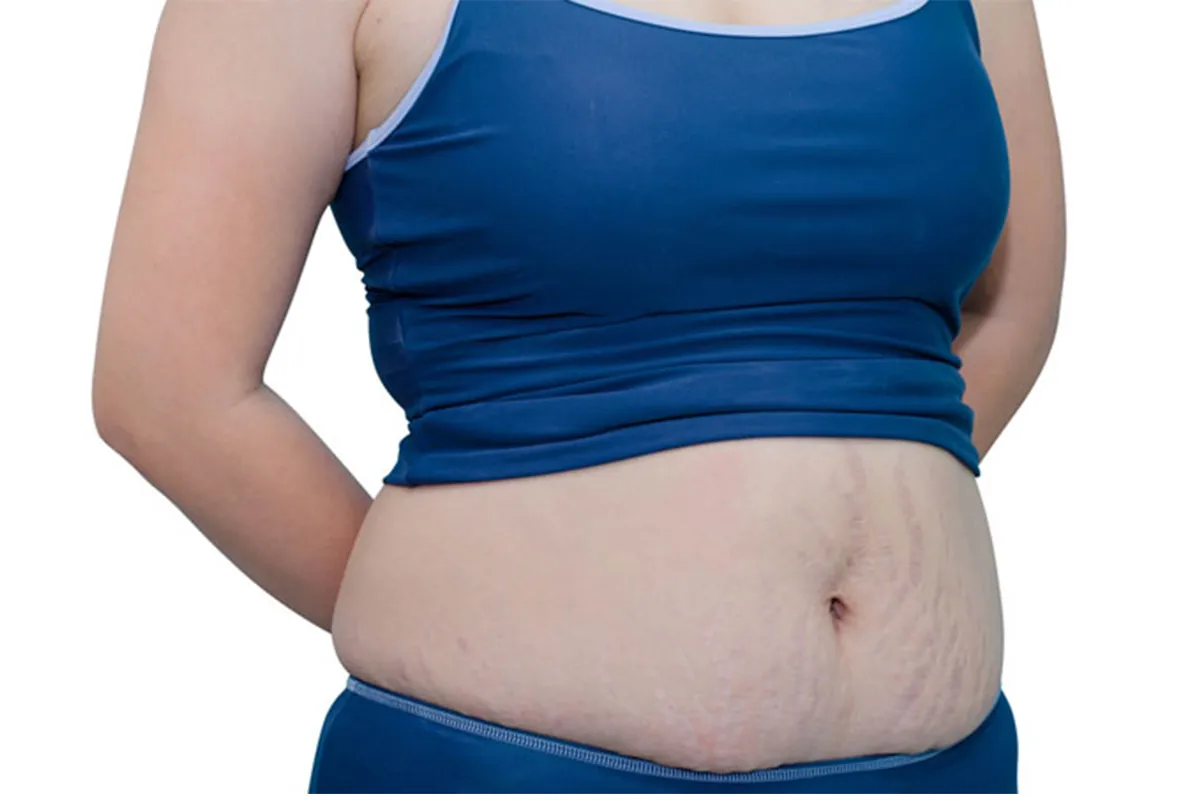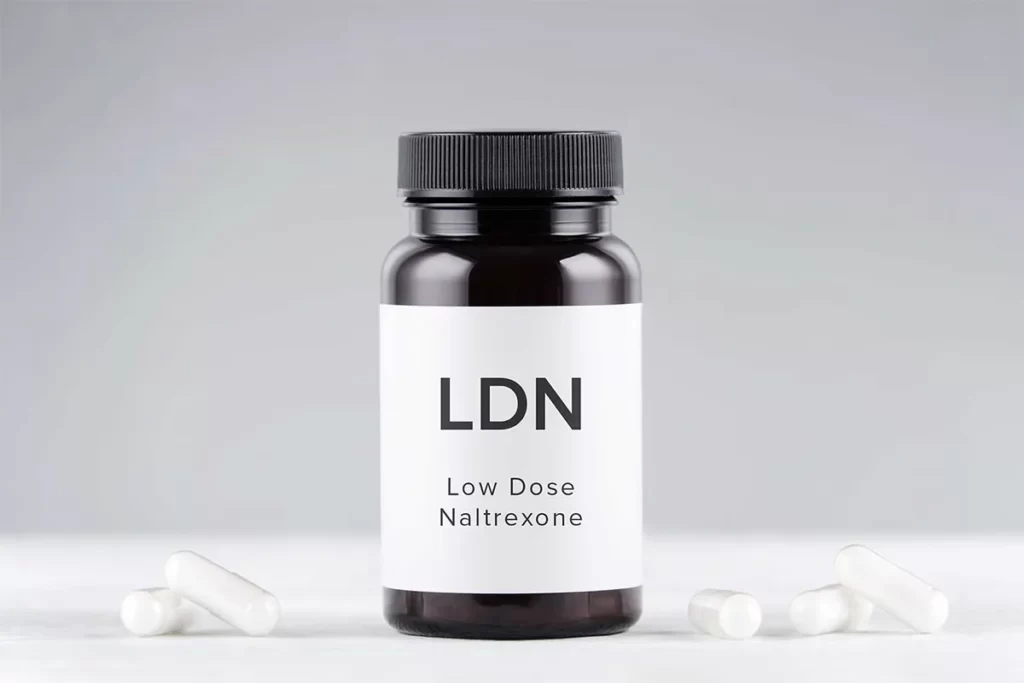Weight Gain After Pregnancy: Causes, Impacts, and How to Manage It
-
 Written by
Michael J. Ormsbee
Written by
Michael J. Ormsbee
- LAST UPDATED September 22, 2023
Weight gain after pregnancy is a common phenomenon that many new mothers grapple with. It’s usual and anticipated for women to put on additional weight during pregnancy in order to nourish the developing baby. However, shedding these extra pounds post-childbirth can pose a challenge. Statistically, up to 80% of women continue to carry this retained weight one year beyond delivery. This increase in weight following pregnancy has substantial effects on both physical and mental well-being. By comprehending the root causes, implications, and methods to handle post-pregnancy weight gain, new mothers can better care for their bodies during this transformational phase.
This article will provide an overview of the key factors behind weight gain after pregnancy. It will discuss the effects it can have on women’s health and self-image. Finally, it will offer practical tips on how to approach healthy and gradual postpartum weight loss. With realistic expectations, nutrition, exercise, rest, support, and self-care, it is possible to get back to your pre-baby weight safely. The key is being patient and kind to yourself through the process.
10 Causes of Weight Gain After Pregnancy
Weight gain after pregnancy is a common experience new mothers face. The transformation women go through, once they have their babies, could lead to undesirable weight changes. Understanding the causes can be beneficial for managing postpartum body changes. Here are the top 10 factors contributing to postpartum weight gain.
Hormonal Changes: Pregnancy triggers dramatic hormonal fluctuations, with hormones like progesterone, estrogen, cortisol, and HPL playing major roles. The postpartum dip in progesterone escalates appetite and cues the body to store fat. Fluid retention, another aspect of hormonal change, often continues after childbirth. These hormonal influences significantly contribute to weight gain after pregnancy.
Lifestyle Changes: The responsibilities of caring for a newborn are demanding and exhausting. Finding time for healthy meals or exercise could be challenging while juggling the role of a new parent. Lack of regular exercise paired with stress and irregular sleep schedule—a prominent lifestyle change—encourages rapid weight gain after pregnancy.
Diet Variation: Mothers need to consume additional calories during pregnancy for the fetus’s development. Continuing this high-calorie intake postpartum, on the other hand, obstructs weight loss. It’s also worth noting that an overly restrictive diet could have the opposite effect, contributing to further gaining weight while pregnant.
Reduced Physical Activity: Gentle and appropriate exercises are advised during and post-pregnancy. However, the exhausting reality of caring for a newborn can result in diminished physical activity. This lack of regular exercise affects the metabolic rate and thus leads to weight gain after pregnancy.
Genetic Factors: If a woman is overweight prior to conception and/or has a family history of obesity, she’s more likely to experience excess weight gain after delivery. Genetics significantly influences one’s postpartum body weight.
Breastfeeding Impact: While breastfeeding helps burn calories, it also increases hunger levels. Not managing these augmented hunger levels adequately may result in unhealthy snacking, contributing to overall weight gain after pregnancy.
Sleep Disruptions: Sleep deprivation, a common scenario for new mothers, disrupts metabolism. The altered metabolic rate can lead to post pregnancy weight gain.
Postpartum Depression: Some mothers experience postpartum depression which can affect lifestyle, diet, and motivation to exercise. This often neglected aspect could be a significant contributor to weight gain after childbirth.
Aging: Age also plays a role in postpartum body weight changes. Older mothers have a slower metabolism which could lead to more pronounced weight gain after pregnancy.
Number of Pregnancies: The number of pregnancies a woman has gone through also influences her postpartum weight. Generally, with each additional pregnancy, it becomes harder to shed the extra pounds, causing more noticeable gaining weight while pregnant.
So, weight gain after pregnancy doesn’t happen without cause. It’s a complex interplay of hormones, lifestyle, diet, genetics, and other factors that lead to this common postpartum body change. Recognizing these contributors can help in formulating effective strategies to manage weight gain after pregnancy hormones.
Impacts of Weight Gain After Pregnancy on Physical and Mental Health
Weight gain after pregnancy is a challenge that many new mothers face. This prolonged postpartum weight retention can negatively impact both physical and mental health in multiple ways. In this article, we will delve further into these effects and their potential consequences.
Physical Health Effects
Increased Obesity Risk: Postpartum weight retention can set the stage for long-term obesity. Excessive weight gain after pregnancy might lead to being overweight or obese after subsequent pregnancies. This creates a cycle that becomes progressively difficult to break.
Impaired Cardiovascular Health: Persistent weight gain after pregnancy raises the likelihood of developing hypertension, high cholesterol, stroke, and heart disease. These conditions can have a severe impact on an individual’s overall health and wellness.
Increased Diabetes Risk: Retaining extra weight after childbirth is associated with higher chances of developing gestational diabetes during future pregnancies or type 2 diabetes later in life. Managing postpartum weight gain is crucial for minimizing these risks.
Musculoskeletal Pain: The additional pregnancy-related weight puts a strain on the back, hips, knees, and feet. This leads to orthopedic pain and mobility issues. These discomforts may further hinder weight loss efforts as they can limit an individual’s ability to exercise and be active.
Decreased Energy Levels: Increased body weight demands more energy for movement and routine activities. Consequently, fatigue and lethargy may result, further complicating efforts to manage weight gain after pregnancy.

Mental and Emotional Impacts
Poor Body Image and Self-Esteem: Rapid weight fluctuations during and after pregnancy can diminish self-esteem and body confidence. Women often feel guilty and frustrated at their inability to lose weight, affecting their mental well-being.
Postpartum Depression: While the development of postpartum mood disorders is complex, uncontrolled gaining weight while pregnant can be a contributing factor in some cases. It’s vital to consider this aspect during the postpartum period and seek help when needed.
Negative Self-Talk: It’s common for women to experience thoughts such as, “My body failed me” or “I don’t recognize myself anymore.” This negative self-talk undermines self-worth and can perpetuate gaining weight while pregnant by discouraging healthy habits and self-care.
Social Isolation: Women who feel embarrassed about their weight gain after pregnancy may avoid social situations and interactions. This may lead to deeper feelings of isolation, worsening the cycle of emotional distress and poor self-image.
Relationship Struggles: Changes in intimacy, libido, and confidence due to body image issues after childbirth can affect partnerships. Open communication and patience are crucial for maintaining healthy relationships in the face of weight gain after childbirth.
Anxiety About the Future: Concerns about being overweight through menopause or never attaining their pre-baby weight contribute to increased stress levels. This anxiety may make it even more difficult to adopt healthy habits and successfully address weight gain after pregnancy.
Clothing and Dressing Impacts: When old outfits no longer fit comfortably, the daily act of getting dressed can become demoralizing. Feelings of inadequacy may discourage women from pursuing a healthier lifestyle.
The effects of weight gain after pregnancy are far-reaching and complex. However, awareness and proactive efforts can help counter these impacts and support a more balanced approach to physical and mental health during the postpartum period. Adopting a healthy lifestyle, seeking support from loved ones and professionals, and being patient with oneself are all crucial steps in addressing weight gain after pregnancy and its associated challenges.
Managing Weight Gain After Pregnancy: 20 Effective Strategies
Weight gain after pregnancy is a normal part of the postpartum journey; however, excessive weight retention can lead to adverse health effects. It requires patience, kindness, and understanding, along with practical strategies to ensure weight loss while maintaining health and well-being.
- Adopt Realistic Timelines
Remember, it took about nine months to gain the pregnancy weight, hence it makes sense to allow at least as much time to lose it. Setting unrealistic goals can lead to disappointment and unnecessary stress during an already challenging period.
- Embrace the Power of Breastfeeding
Breastfeeding, if possible, may help with weight loss as it requires the body to burn additional calories. Plus, it fosters a strong bond with your newborn and provides crucial health benefits.
- Two-Pronged Approach to Nutrition
A significant factor in managing weight gain after pregnancy is focusing on eating the right foods and limiting the harmful ones. Incorporating protein, whole grains, dairy, fruits, and vegetables into frequent small meals can provide balanced nutrition while aiding weight loss.
- Limit Empty Calories
Cutting down on sugar, saturated fats, and processed foods will help. These contain massive amounts of hidden calories that contribute to weight gain after pregnancy without offering any health benefits.

- Embrace Regular and Varied Physical Activity
Physical activity plays a critical role in managing rapid weight gain after pregnancy. Simple acts like walking, paired with moderate-intensity activities like yoga and swimming, can be introduced gradually (once medically approved).
- Prioritize Sleep and Rest
While caring for a newborn can be disruptive to sleep patterns, remember that sleep deprivation can lead to weight gain by disrupting metabolism-regulating hormones. Prioritize rest and self-care to maintain your health.
- Seek Social Support
Tackling weight gain after pregnancy hormones doesn’t have to be a solitary journey. Joining supportive communities online or in person can provide motivation, inspiration, and the reassurance that you’re not alone.
- Acknowledge and Address Emotional Turmoil
The baby blues or more serious postpartum depression can affect your feelings about weight gain after pregnancy. If intense negative emotions persist, seeking help from a therapist can prove beneficial.
- Celebrate Your Body
Amidst weight loss efforts, don’t forget how miraculous your body is. Honor and nurture it; it’s the vessel that carried and nurtured life.
- Solicit Professional Help
If traditional weight loss strategies aren’t yielding results, there’s no shame in turning to professionals like dieticians or personal trainers. They can provide personalized guidance to manage weight gain after pregnancy.
- Hydration is Key
Keeping hydrated is a natural appetite suppressant and aids in digestion, which can help counter gaining weight after giving birth.
- Practice Mindful Eating
Paying attention to what you eat, enjoying every bite, and resisting the urge to multitask during meals can prevent overeating, thus helping manage weight gain after pregnancy.
- Take Up Strength Training
With the doctor’s approval, introduce strength training into your routine. It aids in muscle building, which in turn stimulates metabolism and aids in weight management.
- Consider Postpartum Massages
Studies suggest that postnatal massages can help relieve stress and promote overall well-being, assisting in managing weight gain after pregnancy.
- Focus on Portion Sizes
Monitoring portion sizes is as important as the kind of food you eat. Overeating healthy foods can also add to the weight gain after pregnancy.
- Maintain a Journal
Getting into the habit of recording meals and physical activities can keep you aware of your habits, helping address overweight after pregnancy.
- Create a Routine
Setting daily routines around meal times, physical activity, sleep, and relaxation can provide structure, making it easier to manage weight gain after pregnancy.
- Dress Comfortably
While working toward weight loss, wear clothes that make you feel good about yourself. Good dressing enhances mood and motivates you to maintain healthier habits.
- Treat Yourself Occasionally
A small treat occasionally won’t derail your weight management efforts but will make the process more enjoyable.
- Be Patient and Kind
Remember that progress may be slow, but any step towards a healthier you is a positive step. Be loving and patient with yourself as you navigate this phase.
Managing weight gain after pregnancy withstands the test of time, requiring patience, persistence, and self-love. Above all, knowing that seeking and accepting help is a sign of strength can make this journey smoother and healthier.
FAQs about Weight Gain After Pregnancy

Why am I gaining weight after pregnancy?
Hormonal shifts, metabolic changes, lifestyle factors like diet, activity, sleep, and genetic predispositions are the main reasons for weight gain continuing after delivery. Retaining fluids, increased appetite, and the body storing fat for breastfeeding energy contribute to postpartum weight gain.
How long does postpartum weight gain last?
Most women lose the bulk of pregnancy weight by 6 months to a year after giving birth. However, some women continue gaining or are unable to lose for longer. Carrying extra pounds for years after delivery is linked to long-term obesity. Consult a doctor if unable to lose weight.
Do you permanently gain weight after pregnancy?
Not necessarily. With healthy lifestyle changes, most mothers can return close to their pre-pregnancy weight over time. But the body may not look exactly the same again. Some permanent changes like wider hips and feet can remain. The key is focusing on being healthy, not just thin.
How do I get rid of postpartum weight retention?
Eat a balanced postpartum diet and stay active via walking, yoga etc. But don't crash diet. Get enough sleep and support. Lose weight gradually over weeks to months. See a doctor if concerned about postpartum weight retention. Be patient and understanding with yourself.
Why is it so hard to lose weight after pregnancy?
Hormonal changes, genetic tendencies, demands of newborns, lack of sleep, poor diet, inactivity, stress, and fatigue converge to make losing baby weight difficult. Don't be discouraged. With support and healthy behaviors, most moms successfully shed the extra pounds over time.






